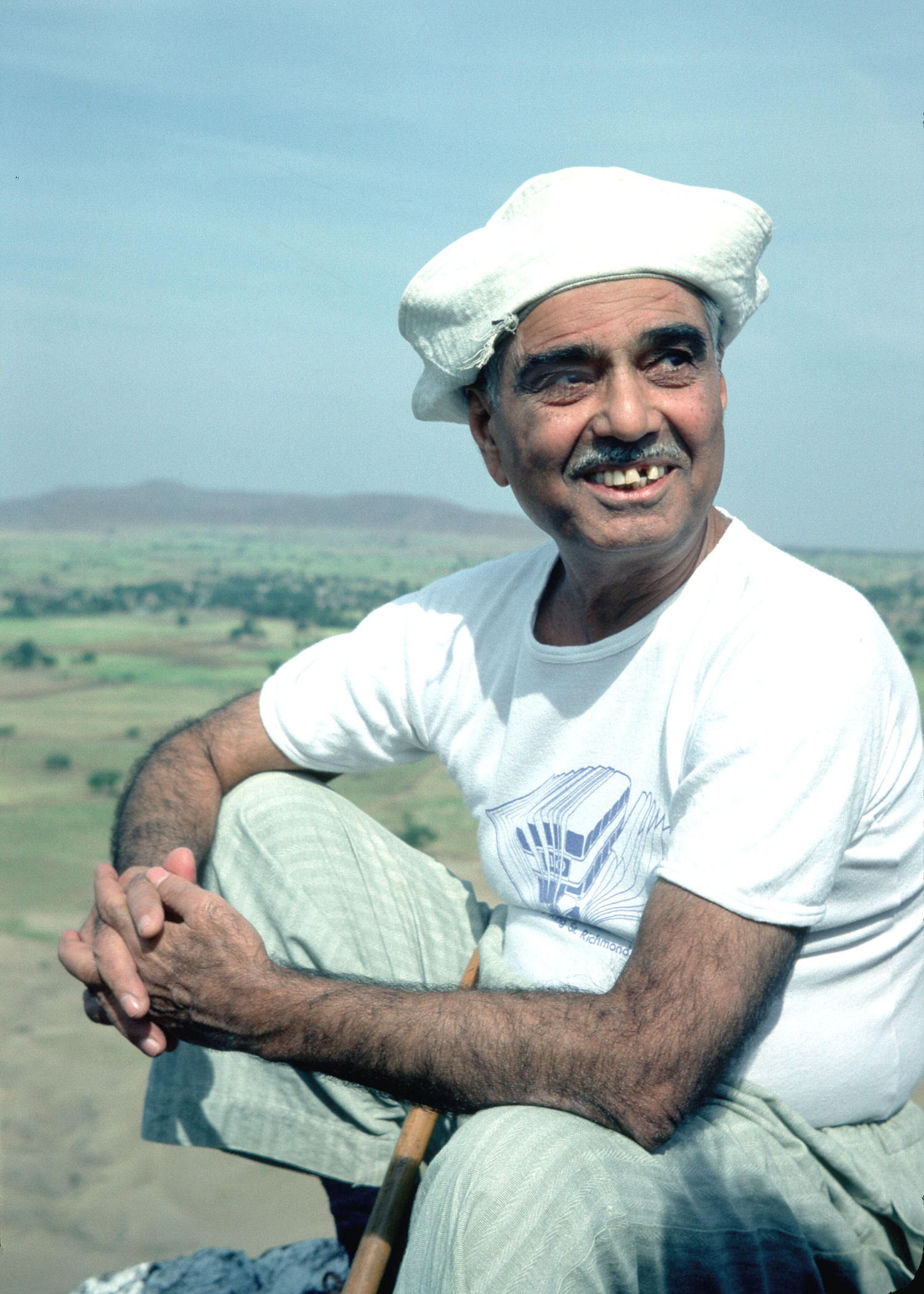Familiar Friend
Eruch
5 x 7"
NOW ON SALE:
NOW ON SALE:
Please choose option:
$12.00
A friend to so many, Eruch sits atop Seclusion Hill sharing stories of his life with Baba.
Photographer: Win Coates.

Eruch Jessawala
In May 1938, in Panchgani, India, Meher Baba spelled out on his alphabet board to the twenty-two year old man standing before him, “Is it possible for you to leave everything and come to me?” The young man replied, “By your grace, anything is possible.” “Good,” Baba said. “Come on 1st August 1938.” As Eruch turned to leave, Baba further spelled out, “Is it possible for your whole family to leave everything and come to me?” Without hesitation, Eruch repeated, “By your grace, anything is possible.” Those six words sealed the destiny of Eruch Jessawala, his parents (who had been in Baba’s contact since the 1920s), and his two younger sisters and brother. Until the end of his life, Eruch would confess, “Why I said that, I have no idea. But I have exercised my freedom to become his slave."
Eruch became one of Baba’s closest disciples and is known throughout the Baba-world as his “voice”, the main interpreter of Baba’s alphabet board and hand gestures. He also served Baba as his personal attendant, travel companion, “mast-hunter” [mast = god-intoxicated souls], and scribe for Baba’s book God Speaks as well as numerous letters, messages and circulars. For the thousands of pilgrims who came to Meherazad after Baba passed away in 1969 until Eruch’s demise in 2001, Eruch’s stories of the human side of the God-man brought Baba’s advent to life. A raconteur extraordinaire, he tirelessly shared Baba’s message and his own stock of simple spiritual wisdom gleaned from a life with him.
Baba once remarked that if ever he enjoyed the company of anyone, it was Eruch. Along with his great intelligence, disarming humility and mischievous sense of humor, Eruch had a tremendous personal warmth and concern for each individual, and a habit of extending himself as a friend to all he came across. Yet he is most remembered for his phenomenal dedication to his master, and for the example he left of a true slave in service to Meher Baba, whom he called his “all in all.”







